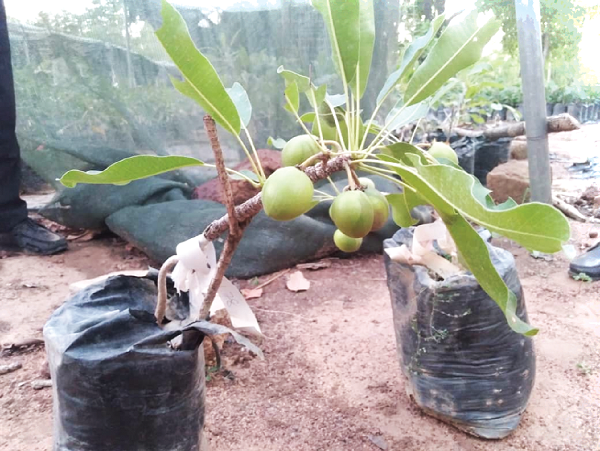
Bole CRIG develops short gestation shea
The Cocoa Research Institute of Ghana (CRIG) at Bole in the Savannah Region has conducted a successful research into reduction of the gestation period of the shea tree from about 20 years to five or less.
The research was conducted by scientists of the institute into hybridisation, grafting and cutting of the economic tree to discover varieties of shea with short gestation period just as cocoa and cashew.
Advertisement
Currently, the institute under the auspices of the Ghana Cocoa Board (COCOBOD) is also researching on the physiology of the species and how to develop innovative ways of processing the nuts to meet international standards.
Following the varieties discovered, there has been a growing demand for shea seedlings as a number of farmers are rushing in for the seedlings to plant.
Visit
These came to light when the National Planning Committee of the World Shea Expo led stakeholders in the shea value chain to visit the research fields of CRIG to acquaint themselves on the research work and challenges of the institute.

Led by the Savannah Golden Tree, organisers of the World Shea Expo and COCOBOD, the team comprised officials of the Ghana Export Promotion Authority, Tree Crop Development Authority, Ministry of Food and Agriculture, National Board for Small Scale Industries, Ghana Tourism Authority and SWIDA GH, a non-governmental organisation.
During the visit to the research fields, it was observed that some of the grafted and cutting species planted for five years or less had started fruiting. In one of the fields, a year-old grafted shea was seen bearing fruit even on the seedling bed.
A Senior Research Scientist at CRIG, Dr Julius Yeboah, described the outcome of the research as a major breakthrough for Ghana as they had been conducting the research to find species with short gestation since 2006.
He said the new varieties had so far proven to be weather resistant and was doing well in the Savannah Ecological Zone, adding that more resources were needed to enable them to roll out the species for plantation.

“We are the only institution in West Africa to be able to successfully conduct this research, just like cocoa and cashew, the gestation period of shea can also be reduced, but our greatest challenge is resources, which when improved will facilitate our work” he noted.
More investment
A Deputy Director in charge of Monitoring and Evaluation at COCOBOD, Mr Michael Owusu-Manu, said the government, through COCOBOD, was investing in the shea sector through research, plantation and processing to help create more jobs to alleviate poverty in the area.
He indicated that the future of the country's shea industry lay in the continuous existence of the shea trees, thus the need for all and sundry to protect the shea trees and also plant new ones.
He commended the research scientists for the efforts they had made to discover the new species and pledged that COCOBOD would continue to commit more resources into research to promote the shea sector.
For his part, the Chief Executive Officer of Golden Shea Tree, Mr Zakaria Abdul Rashid, lauded the researchers for their efforts to reduce the gestation period of shea which was a main economic tree in the area.

He expressed the hope that the move would boost shea yields, which would improve livelihoods of actors in the value chain as well as contribute to the growth of the economy.
He also called on the government and various stakeholders to show concern about the destruction of the economic tree and come out with a pragmatic approach to address the menace.
“We must protect the trees to be able to develop the shea sector to create more jobs for the people of Northern Ghana, particularly the teeming unemployed youth and women,” he added.
Shea Expo
Mr Abdul Rashid indicated that the maiden edition of the World Shea Expo, which was slated for April 2020, could not come off due to the COVID-19 restrictions, adding that plans were far advanced to reorganise the event when the restrictions were eased.
The event was expected to bring together investors, pharmaceutical companies, research organisations, women's groups, players in the cosmetic industry, government agencies as well as women's groups to promote the export of shea.
The shea tree, scientifically called vitellaria paradoxa, is an indigenous and exclusive asset in West and Central Africa and particularly abundant in the Northern Savannah areas of the country.
An estimated three million rural women in Ghana, particularly the Savannah Ecological Zone, make a small income from shea butter. The tree's ability to survive dry weather conditions makes it an attractive farming option in the Savannah Ecological Zone.
Export earnings from shea butter products are said to have reached US$64 million in 2015. In the past seven years, shea had been part of the top 10 leading non-traditional export products from the country.



